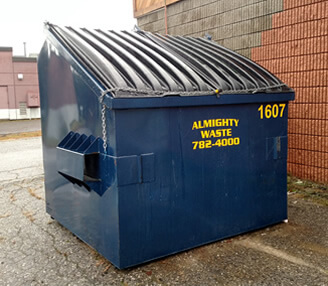When renting a dumpster, 3 essential considerations can make all the distinction. Initially, recognizing local regulations is important, as licenses, size restrictions, and product guidelines can differ significantly. Next, picking the right dumpster size is crucial, as it influences efficiency and cost-effectiveness, with popular dimensions varying from 20 to 40 cubic yards. Ultimately, selecting the appropriate dumpster type, such as roll-off, front-load, or compactor, is required to satisfy particular job requirements. By concentrating on these crucial aspects, individuals and organizations can guarantee a seamless and affordable dumpster rental experience, and find even more means to optimize their waste monitoring project
Understanding Neighborhood Regulations
Some common laws include obtaining permits, sticking to specific dumpster sizes and types, and complying with standards for positioning and duration.
Additionally, some locations may have limitations on the types of materials http://piedmonttriaddumpsters.wpsuo.com/planning-a-move-below-s-why-you-need-a-dumpster-rental that can be thrown away in a dumpster, or needs for dividing recyclables.
Understanding these guidelines upfront can help you plan your task better, guaranteeing that you remain in compliance and preventing any kind of possible setbacks.
Choosing the Right Dumpster Size
When intending a project that requires a dumpster rental, comprehending local regulations is simply the first step.
The next crucial factor to consider is picking the right dumpster size for your certain needs. This choice can significantly impact the efficiency and cost-effectiveness of your task. A dumpster that is too small might cause multiple rentals, leading to increased expenses and logistical problems. On the other hand, a dumpster that is also large might squander beneficial space and resources.
To determine the optimal dumpster dimension, take into consideration the range and scale of your task. Estimate the volume of waste you anticipate to generate and consider any type of specific needs, such as suiting bulky products or heavy materials.
Common dumpster dimensions vary from 10 to 40 cubic yards, with 20 and 30 cubic lawns being prominent options for domestic and commercial projects. By selecting the ideal dumpster dimension, you can guarantee a smooth and successful project that remains within budget plan and schedule.
Selecting the Appropriate Dumpster Type
Project needs determine the requirement of a specific dumpster type to assure reliable waste administration and avoid logistical complications.
Different projects call for distinctive dumpster kinds to fit varying waste streams, abilities, and website restrictions. Choosing the proper dumpster kind ensures a smooth waste management experience, stopping costly hold-ups and ecological hazards.
When picking a dumpster type, think about the following aspects:
Roll-off dumpsters: perfect for large building and construction, demolition, and landscape design projects, supplying high-capacity waste storage and very easy transportation.
Front-load dumpsters: ideal for industrial establishments, restaurants, and retail stores, offering routine waste collection and portable storage.

Rear-load dumpsters: generally made use of for property waste collection, using convenient loading and unloading operations.
Compactor dumpsters: created for high-volume waste generators, such as grocery stores and healthcare facilities, featuring integrated compactors for reliable waste compression.
Specialty dumpsters: satisfying special task needs, consisting of hazardous waste disposal, building and construction debris recycling, and organics composting.